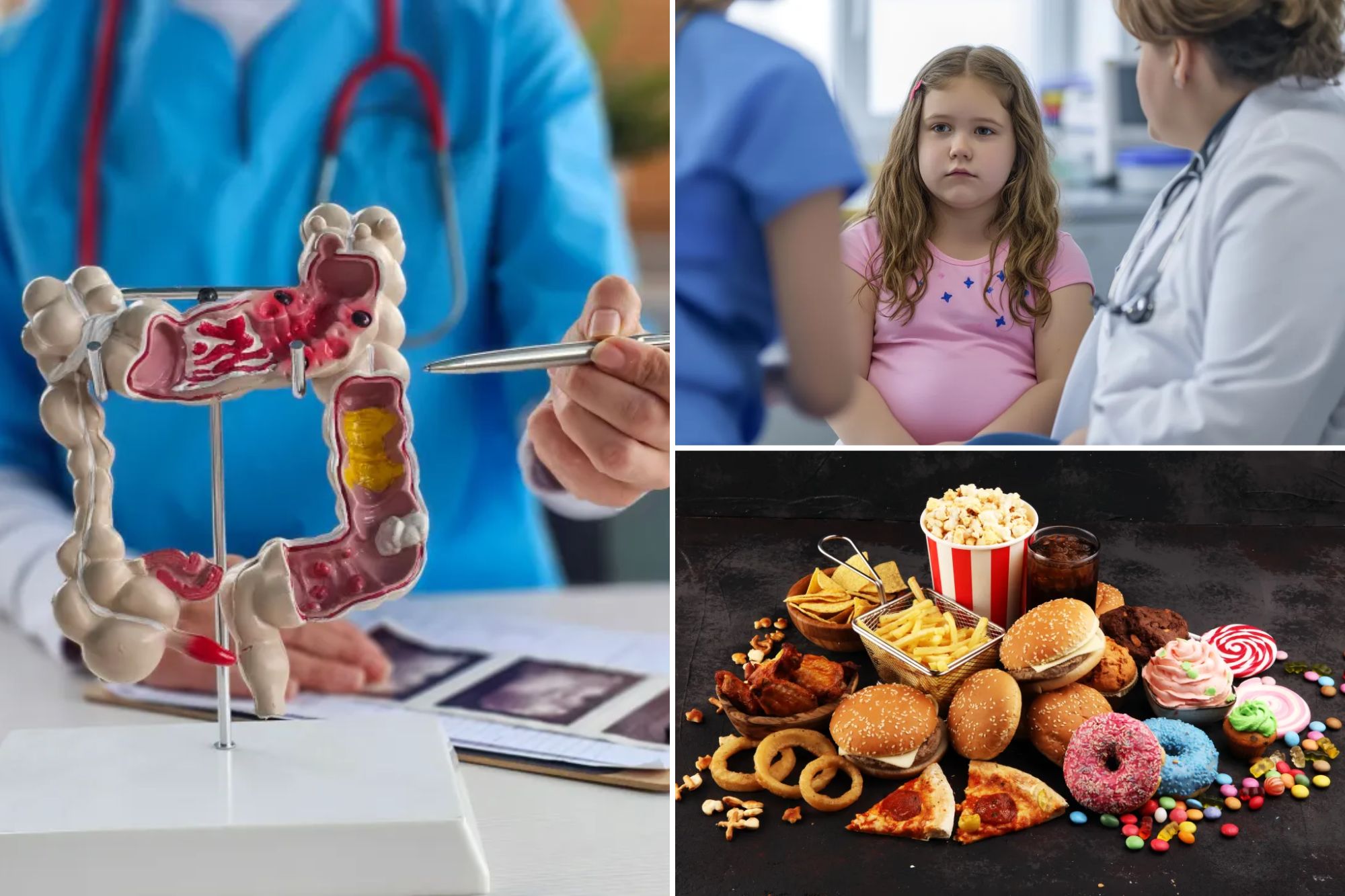Your past could bite -you literally.
A new study suggests that a key factor in early life could increase the risk of developing colorectal cancer as an adult.
The findings are added to a growing research body that seeks to point out what feeds the alarming increase in colorectal cancer among the north -Americans under 50 over the last three decades.
“Although the relationship between adult body size and colorectal cancer risk is well documented, the potential influence of body size during early life is less understanding,” said Dr. Dieuwertje Kok, a associate professor of nutrition and cancer at Wageningen University and research.
To reach the bottom, Kok and his colleagues analyzed 37 studies by tracking how the weight, height and size of the body in childhood and young adulthood could affect the risk of colorectal cancer later in life.
They found that for young adults of 18 to 25 years, each increase of five points of the body mass index (BMI) above the healthy range increased the risk of colon cancer by 12%.
For adolescents between the ages of 10 and 19, this risk increases between 5% and 18%.
Even children are not safe, a high BMI in children of two young people, as two were also related to a higher risk.
And here is the kicker: every kilo (2.2 pounds) at birth on the “normal” weight of birth, which is 2.5 to 4 kilograms, or from 5.51 to 8.82 pounds, it was linked to 9% chance of developing colorectal cancer on the road.
“Cancer is a complex disease that has been developed for several decades, so the better understanding of its early origins is essential for more effective prevention efforts and to understand research gaps,” said Dr. Helen Croker, Deputy Director of Research and Policies of the World Cancer Research Fundacional.
“The results of this study show that body mass index throughout childhood through young adulthood is a significant risk factor for colorectal cancer,” he added.
Colorectal cancer has long been associated with adults, especially people over 65. But rates between children under 50 have been increasing since the 1990’s.
In fact, if he was born between 1981-1996, he faces double the risk of colorectal cancer compared to people born in 1950, according to the University of California Davis Health.
Scientists suspect that ultra-processed foods and certain diets are main engines for increasing colorectal cancer in young Americans.
A study linked the “western diet”, which is rich in fat and low fiber, with an imbalance of intestinal bacteria, triggering inflammation that ages cells faster and makes them more prone to cancer.
Another found that low calcium intake is linked to one in five deaths from colorectal cancer in 35 years and younger people.
It has also been shown that ultra -processed junk such as ice cream, chips and soda increase risk and weaken the body’s ability to fight the disease.
Our sofa potato habits do not help. A 2019 study found that young adults who watch more than two hours of television a day have a higher risk of 70% of developing colon cancer than those who see the least.
Chronic conditions also play a role. Research suggests that people with non -alcoholic fatty liver disease (NAFLD), mainly due to obesity, diabetes, blood pressure and high cholesterol, are almost 24% more likely to suffer from colon cancer.
Inflammatory intestinal disease, Crohn’s disease and ulcerative colitis have also been shown to increase the risk.
But here is the frightening fear: colorectal cancer is shown in young people, healthy and active without obvious risk factors. For them, the culprit may be hidden environmental genetics or triggers.
A study found that a toxin of certain E. coli bacteria called coibactin leaves a unique DNA mark on colon cells in exposed children. These mutations were 3.3 times more frequent in cases of early onset than in large patients.
In another study, researchers found a fungus called Cladosporium, which usually causes skin infections and nails, in young patient colorectal cancer tumors. Scientists are not sure how the disease triggers, but it can damage DNA.
A gene called HMGA1 may also contain the answer. Research suggests that it acts as a “key” that rotates in the DNA regions that control the stem cells of the colon. When overacting, due to stress, mutations or poor diet, it can cause tumor growth and help cancer hide from the immune system.
As scientists run to discover the causes of early colorectal cancer, young Americans are still diagnosed with alarming rates.
Worse, young adults often diagnose later, when the disease is more advanced and the tumors are more aggressive.
This has helped to turn colorectal cancer into the main cause of cancer death in men under the age of 50, and the second most deadly for women in the same age group.
In response, the U.S. Preventive Services Force reduced the recommended screening age from 50 to 45 by 2021 for average risk adults.
By 2025, the American Cancer Society estimates that about 154,270 North -Americans will be diagnosed with colon or rectal cancer, and about 52,900 will die.
#Alarming #study #finds #small #difference #birth #significantly #increases #risk #colorectal #cancer
Image Source : nypost.com
